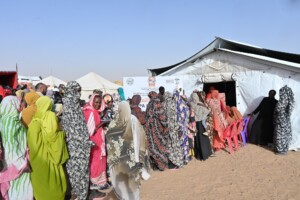Tax and fees to finance bulk of Sudan’s 2016 budget
Taxes and fees will be the main source of income for Sudan’s national budget this year, according to Dr Hassan Bashir, economist at the El Nilein University in Khartoum.
Taxes and fees will be the main source of income for Sudan’s national budget this year, according to Dr Hassan Bashir, economist at the El Nilein University in Khartoum.
In an interview with Radio Dabanga, Dr Bashir says the government will make use of internal debt, and bonds issued by the Central Bank of Sudan. The budget will probably also be supported through foreign loans from a number of funds and countries such as China, Russia, and the Gulf states.
Bashir added that there are still some revenues to be expected from the oil in South Sudan and which Juba may supply.
Important resources are also land and real estate and other assets but the main revenues will most likely be obtained from taxes and fees in addition to the revenues expected to be obtained from gold mining and other minerals.
He pointed out that Sudan’s budget amounts to $7 billion, according to the US Dollar rate on the black market, and about $11 billion according to the Bank of Sudan rate. “This is not a large amount if there were real and diverse sources of revenue.”
He said that the security services and army will enjoy priority in the new budget. He cited the statement of President Al Bashir that if the whole budget is spent on security and the military, it will not be sufficient.
Dr Bashir says that “if political stability is not achieved and security is not restored there will be a problem in the economic and social development. According to widely available and published data, 78% of the budget goes to security, defence and police, in addition to spending on an oversized administrative body, legislative councils, and the large number of executive personnel.”











 and then
and then